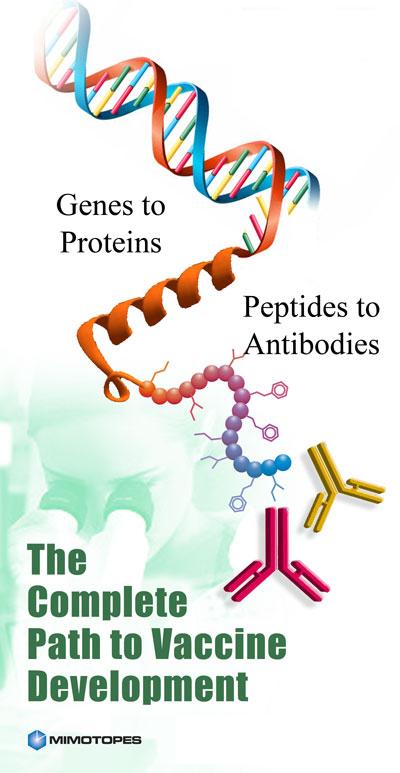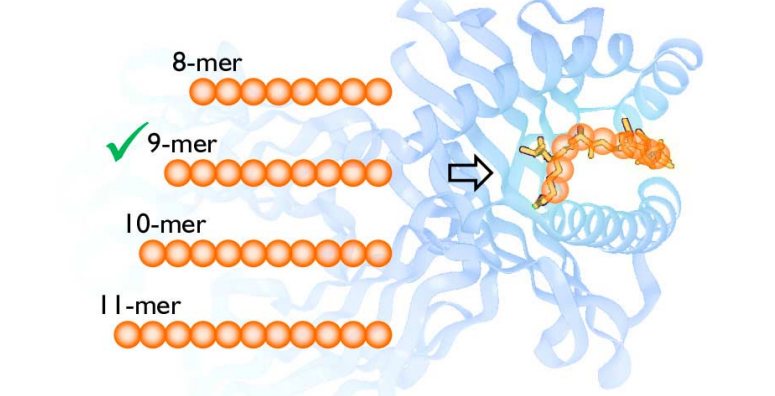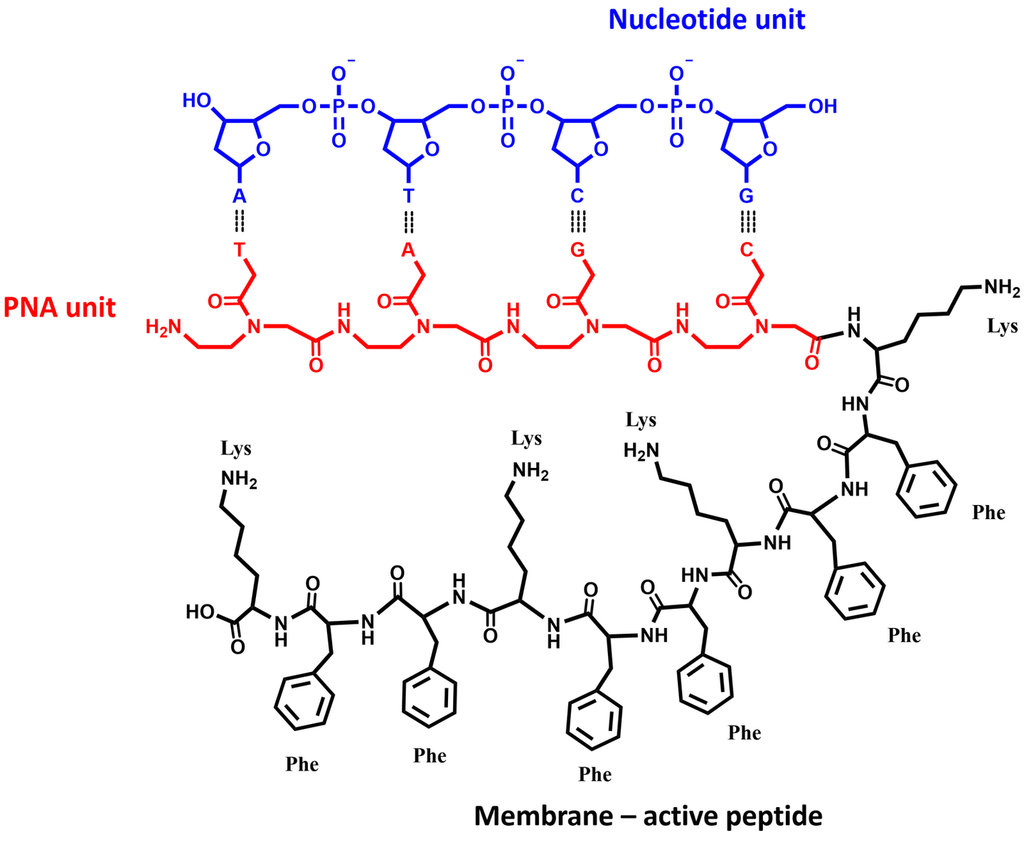Company Insight
Sponsored by Mimotopes
From Synthesis to Circulation: Ensuring Stability and Bioavailability of Peptides
How stability and bioavailability define the contours of innovative therapeutic strategies.
Main image: Lanterns on Stemholder.
Cracking the Peptide Code
Mimotopes specialize in custom peptides. Each custom-synthesized peptide from Mimotopes is like a tailored instrument in a researcher's toolkit. Scientists modify these molecular tools with specific traits, helping them conduct experiments and unlock scientific mysteries, much like having the right keys to open the doors of discovery. Custom peptides are synthesized using solid-phase peptide synthesis (SPPS) techniques, which allow for the precise control of peptide sequence and modifications.

Mimotopes has the tools to identify the binding sites on the protein receptor, the first step in vaccine development.
Mimotopes' track record in the field is marked by several pioneering achievements. Their work in combinatorial chemistry, notably inspired by Professor Mario Geysen, has propelled advancements in drug-like molecule synthesis. The SynPhaseTM Lanterns, a testament to Mimotopes' mastery in polymer chemistry, have redefined solid-phase synthesis platforms.
Their expertise in epitope mapping, covering a spectrum from diagnostics for diseases like HCV to contributing vital insights for potential vaccine candidates against complex viruses such as HIV and influenza, has solidified their reputation as industry leaders.
Custom Peptide Synthesis
Mimotopes offer a custom peptide service for chemically modified and non-standard peptides, including:
- Biotinylation
- Phosphorylation
- Peptide cyclization
- Fluorescent labels
- Long peptides over 50 amino acids
- Peptide conjugation
- D amino acids and other unnatural amino acids
- cGMP peptides
PepSets™ Peptide Libraries
In addition to made-to-order peptides, Mimotopes' existing PepSets™ peptide libraries serve as invaluable resources for Proteomics, Immunology, and Drug Discovery endeavors. These libraries encompass a diverse range of custom-synthesized peptides, offering researchers an immense array of options for bioactivity screening and experimentation.
Peptide Reagents and SynPhase™ Lanterns
In addition to peptides, Mimotopes provides high-quality amino acids, peptide synthesis reagents, and the SynPhase™ Lanterns. These components serve as essential tools in organic synthesis, combinatorial chemistry, and molecule scavenging.
Antibody Services
Good anti-peptide antibodies make great reagents for the rapid development of immunoassays. Mimotopes also provide immunology services, including the design and generation of high-quality polyclonal antibodies.

Peptide Bound to Class I MHC: Only a peptide of the appropriate length, specifically a 9-mer in this case, will bind to the MHC molecule. PepSetsTM-TC are an ideal way to perform screening with a wide range of peptides for major Histocompatability Antigen binding or T-cell activation.
Advancing the peptide frontier with Peptide Nucleic Acids (PNAs)
Mimotopes is leading the next frontier in Peptide-enabled therapies with PNAs, which are synthetic molecules designed to mimic the structure of DNA and RNA. They're like molecular tools that scientists use to study and manipulate genetic material.
Just as peptides are like LEGO bricks that can be assembled into different structures, PNAs are also made up of building blocks, but instead of amino acids, they use nucleobases – the same components found in DNA and RNA. So, while peptides are crucial for building proteins, PNAs are more focused on interacting with genetic material. Its backbone consists of methylene carbonyl bonds linking various purine and pyrimidine bases, resembling peptides. Unlike DNA, PNA lacks charged phosphate groups, resulting in stronger binding to DNA and increased stability against DNases and proteases, both in vivo and in vitro.
Some common therapeutic uses of PNAs include:
Antisense Therapy: PNAs can be designed to bind to complementary sequences of RNA, blocking the production of specific proteins. This approach can be used to treat diseases caused by overproduction of certain proteins, such as cancer or viral infections.
Gene Editing: PNAs can be conjugated with other molecules, such as nucleases, to create gene-editing complexes. These complexes can be used to precisely modify DNA sequences, offering potential treatments for genetic disorders.
Antiviral Therapy: PNAs can target essential sequences within the genomes of viruses, inhibiting their replication and potentially serving as antiviral agents.
Antibacterial Therapy: PNAs can be designed to target essential genes in bacterial pathogens, offering a potential alternative to traditional antibiotics.
Diagnostics: PNAs can be used as probes in diagnostic assays to detect specific DNA or RNA sequences, allowing for the rapid and sensitive detection of pathogens or genetic mutations.

PNA units can be conjugated with peptides, acting as a blocker for unwanted DNA replication. Conversely, you can also add cell penetrating peptides.
The critical importance of stability and bioavailability in the remarkable world of PNAs
Stability: The pillar of therapeutic success
Drug Integrity: Stable PNAs ensure that their chemical structure remains intact during storage, administration, and circulation. This integrity directly impacts their therapeutic efficacy.
Longevity: Stable PNAs maintain their activity over time, allowing sustained interactions with target genetic material.
Resistance to Degradation: PNAs lack charged phosphate groups (unlike DNA), making them less susceptible to degradation by DNases and proteases. This resilience ensures their persistence in biological environments.
Bioavailability: The gateway to targeted action
Effective Delivery: High bioavailability ensures that PNAs reach their intended targets—be it tumor cells, viral genomes, or specific gene sequences.
Optimal Exposure: Sufficient bioavailability maximizes therapeutic effects while minimizing side effects. PNAs must navigate biological barriers (e.g., cell membranes, blood-brain barrier) to achieve this balance.
Example Strategies for Enhanced Bioavailability:
- Nanosystems: PNAs encapsulated in nanoparticles (e.g., micelles) improve cellular uptake and distribution.
- Targeted Delivery: Conjugating PNAs to ligands or monoclonal antibodies guides them precisely to disease sites.
- Intranasal Routes: For neurodegenerative diseases, intranasal delivery allows direct brain access.
- Prodrug Approaches: Enhancing solubility and stability for optimal bioavailability.
The future of peptides
The demand for personalized medicine and the increasing incidence of chronic diseases are likely to contribute to the growth of the peptide market in the future – which has seen a compound annual growth rate of 7% over the past four years and is set to continue, reaching approximately USD 44 billion in 2025.
The rise of peptides is more than a modern pharmaceutical phenomenon; it's part of an enduring narrative of exploration and innovation in a quest to better understand our biological world. It is here that Mimotopes will continue to provide the blueprints for effective bioarchitecture for the betterment of health and medicine.
Contact information
Mimotopes
Suite 1, Unit 9 / 677 Springvale Rd,
Mulgrave, VIC 3170 Australia
Tel.: +61 3 9565 1111
Email: mimotopes@mimotopes.com
Web: www.mimotopes.com
